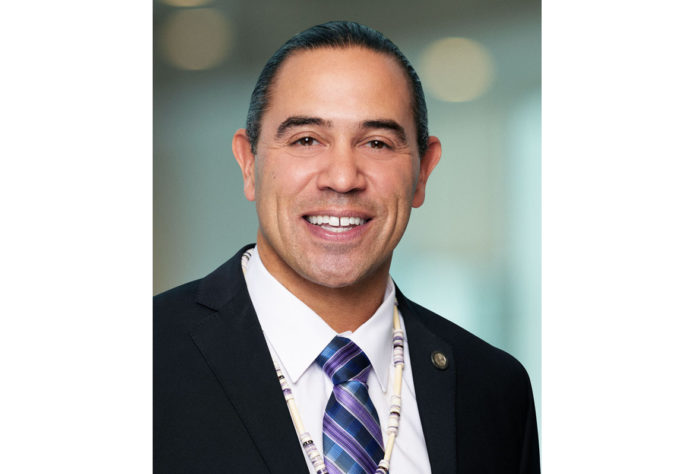WASHINGTON, D.C. – The Native American Finance Officers Association (NAFOA), has elected Chairman Rodney Butler of the Mashantucket Pequot Tribal Nation as the new President of the Board of Directors. Butler succeeds Cristina Danforth of the Oneida Nation who served as President of the Board for six years. At the 2023 Fall Finance & Tribal Economies Conference, Danforth announced her decision not to seek reelection and she officially retired at the 42nd annual conference last week.
Butler, who has chaired the Mashantucket Pequot Tribe since 2010, brings extensive experience and a profound commitment to tribal economic stability and growth to his new role. As a tribal leader of over 20 years, he has overseen multiple expansions of the tribe’s Foxwoods Resort, spearheaded community development initiatives on the reservation, and played a pivotal role in establishing the Mashantucket (Western) Pequot Tribe Endowment Trust. His advocacy for the legalization of sports betting and iGaming in Connecticut significantly contributed to the tribe’s economic growth. Butler’s dedication and leadership have earned him numerous recognitions, including NAFOA’s Tribal Leader of the Year, the Citizen of the Year award from the Eastern Connecticut Chamber of Commerce, and the John Kieffer Sovereignty Award from the Indian Gaming Association (IGA). His service extends to various boards, including the IGA Board of Directors, the National Congress of American Indians (NCAI) Executive Board, and the United South and Eastern Tribes (USET) Board of Directors. Recently, he was appointed to the Treasury Tribal Advisory Committee within the U.S. Department of the Treasury, illustrating his dedication to advancing Native American interests and fostering community development at both local and national levels.
Chairman Butler has been involved with NAFOA over the years and has a demonstrated commitment to the organization. “The growth and sustainability of our tribal economies is one of the greatest contributors to the advancement of tribal sovereignty in recent history,” said Chairman Butler. “Through advocacy, educational efforts, and convening of the brightest minds in Indian Country, NAFOA has served as the cornerstone of economic advancement for our nations. I have been engaged with NAFOA, learning, collaborating, and guiding others in a way that has made me a better leader. No other organization focuses on the cultivation of tribal economies like NAFOA, and I am honored to serve as NAFOA’s next President.”
Butler has actively contributed to the organization by volunteering as a speaker at multiple NAFOA conferences, sharing his expertise and insights with fellow tribal leaders. In 2020, he testified alongside then-President Danforth in a historic hearing with the Ways & Means Committee on the impact of the tax code on tribes, advocating for enduring tribal tax priorities like tribal general welfare programs and discussing dual taxation issues. Additionally, Butler has been a generous supporter of the NAFOA Institute, recognizing the importance of education and professional development in empowering tribal communities. His participation in the Institute’s Leading People and Investing to Build Sustainable Communities executive education program at Harvard Business School underscores his commitment to continuous learning and growth.
“The NAFOA Board of Directors welcomes Chairman Butler as the new President,” said VaRene Martin, First Vice President. “His longstanding dedication to the organization and proven leadership will undoubtedly propel NAFOA forward in its mission to advance the economic stability of Indian Country and support tribal sovereignty.”
Chairman Butler joins current board members, First Vice President VaRene Martin, newly re-elected Second Vice President Celina Phair, Treasurer Amy Minniear, and Secretary Melanie Benjamin, Chief Executive of the Mille Lacs Band of Ojibwe. The Board of Directors is responsible for setting the long-term strategy and direction of the organization, governing activities, and fulfilling its fiduciary duties.















































